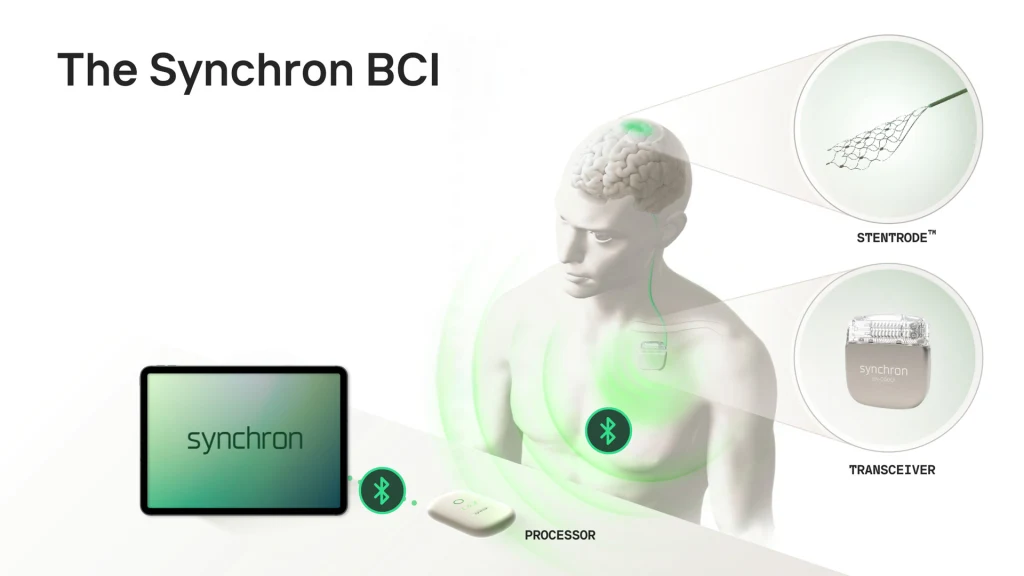Apple is partnering with brain-computer interface company Synchron to develop technology that lets users control devices using neural signals.
Still in the early stages, the technology could significantly expand accessibility for users who are unable to operate devices with their hands, Synchron said in a press release. The partnership was first reported by The Wall Street Journal.
“This marks a defining moment for human-device interaction,” Synchron CEO Tom Oxley said in a statement. “Apple is helping to pioneer a new interface paradigm, where brain signals are formally recognized alongside touch, voice and typing.”
Historically, users have interacted with tech devices through keyboards, mice, and more recently, touch and voice. But these interfaces remain limiting for people with certain impairments.
Apple and Synchron are now working to translate specific brain signals into actions like selecting icons on a screen. Synchron’s implantable device, called the Stentrode, uses electrodes to read brain activity. It integrates with Apple’s “Switch Control” feature, which allows users to operate devices via alternative input methods.

“When we ask our clinical trial participants what they want to do, it’s always about communication and creativity,” Synchron chief commercial officer Kurt Haggstrom said in a statement. “And to most people, that means using their Apple devices. For Apple to recognize that need, and respond to it, demonstrates how much they value accessibility for their users.”
The technology likely remains years away from FDA approval and widespread use. Synchron said limited trials with patients are expected to begin later this year.
Login to add comment
Other posts in this group

Apple shares rose 2% in premarket trading on Friday, after the

OpenAI has removed a controversial opt-in feature that had led to some private chats appearing in Google search results, following reporting by Fast Company that found sensitive conversa




New technologies usually follow the technology adoption life cycle. Innovators and early adopters

If you’ve ever fancied yourself a contestant on American Idol, you can now audition for the newest singing competition—without ever leaving home.
In partnership with iHeartRadio
